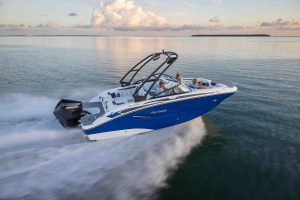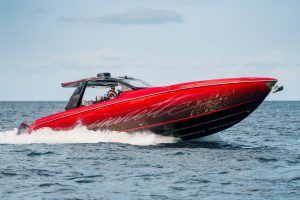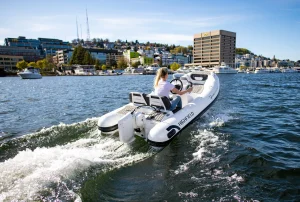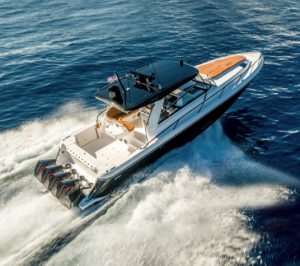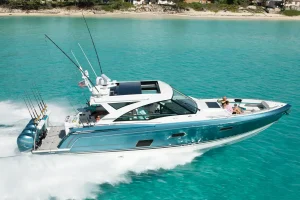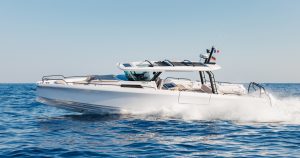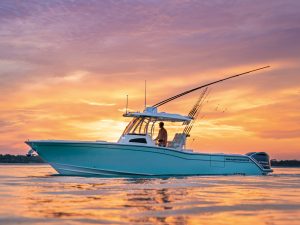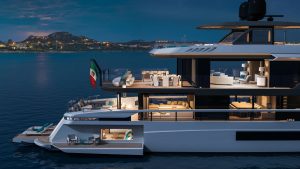Jon Boats: Essential Guide for Buyers and Enthusiasts
Jon boats are versatile, flat-bottomed vessels that are typically made of aluminum or wood. They are popular due to their stability, shallow draft, and affordability. Jon boats are commonly used for fishing, hunting, and recreational activities in calm water environments, such as lakes, ponds, and slow-moving rivers.
Featuring two or three bench seats for passengers and gear, Jon boats often have a simple, utilitarian design that makes them easy to navigate and maintain. The wide, flat hull provides ample space for standing and casting, while their lightweight construction allows them to be easily transported and launched. Some popular Jon boat models include the GRIZZLY series and the Kimple Jon Boat series, each offering various sizes and features to suit the needs of individual boaters.
History of Jon Boats
Jon boats trace their origins back to the late 19th century in the Ozarks region of the United States. These flat-bottom boats gained popularity, as they were well-suited for navigating the shallow waters of the Missouri Valley (Wikipedia).
The exact etymology of the name "Jon boat" remains unclear, although there are a few theories. One theory suggests that the boats were originally made from jack pine, thereby leading to the name "jack boats." Over time, the name possibly evolved from "jack" to "John" (Freshwater Fishing Advice).
Another theory claims that the name "Jon boat" is actually a variation of "Johnboat," which is a concatenation of "John" and "boat." However, no definitive explanation exists for the name's true origin (Pontoonopedia).
The design of Jon boats has not changed significantly over the years — they continue to feature flat bottoms, square bows, and pointed sterns. These characteristics make Jon boats stable, easy to maneuver, and suitable for shallow water fishing and hunting excursions.
Types of Jon Boats
There are different types of Jon boats available in the market, and they vary based on their construction materials, sizes, and purposes. The most common materials used for constructing Jon boats are aluminum and fiberglass, with aluminum being the more popular choice because of its lightweight and durability.
Aluminum Jon boats are often preferred due to their ability to withstand harsh environments and their low maintenance requirements. These boats are resistant to corrosion and can be easily repaired if damaged. Aluminum boats are also lightweight, making them easier to transport and navigate in shallow waters.
On the other hand, fiberglass Jon boats offer a smoother and quieter ride compared to aluminum boats. They are known for being stable and having better aesthetics. However, these boats tend to be heavier and may require more maintenance compared to their aluminum counterparts.
Jon boats can also differ based on their sizes. Smaller boats, typically around 10 to 12 feet in length, are suitable for single or two-person use and are easy to transport. Larger boats, ranging from 14 to 20 feet and beyond, can accommodate more passengers and equipment, making them suitable for group fishing, hunting, or leisure activities.
When choosing a Jon boat, consider its purpose and the features you require. There's a wide variety of options, each catering to different needs such as fishing, hunting, or simply exploring shallow water areas.
Materials Used
Jon boats are primarily constructed from three main materials, each with their own benefits and drawbacks. The most commonly used materials for building Jon boats are marine grade aluminum, fiberglass, and wood.
Aluminum is the most popular material for Jon boats due to its lightweight, durable, and strong properties. Marine grade aluminum is designed to withstand harsh aquatic conditions while remaining relatively low maintenance. It requires specialist metalworking skills to construct a Jon boat using aluminum. (source)
Fiberglass is another widely used material in the construction of Jon boats. It offers a smooth and stylish finish, along with durability and strength. However, fiberglass tends to be heavier than aluminum, which can make the boat less fuel-efficient and slower. The construction process with fiberglass can also be more time-consuming and expensive than aluminum. (source)
Wood is the least common material used for Jon boats, although it offers a timeless and classic aesthetic. Wooden Jon boats require higher levels of maintenance in order to prevent rot and water damage. They can also be heavier than aluminum and fiberglass, affecting their performance and handling. (source)
When selecting the best material for a Jon boat, it's essential to weigh the advantages and disadvantages of each option. Factors such as intended use, budget, and personal preferences will play a significant role in making the final decision.
Popular Uses
Jon boats are versatile and can be used for a variety of activities. One of the most common uses for a Jon boat is fishing. Their flat-bottom design provides stability in calm waters, making it easy to maneuver and cast a line. They are also easy to launch and retrieve, allowing anglers to access different fishing spots quickly.
Jon boats are also well-suited for shallow water use due to their shallow draft. This makes them perfect for exploring marshes, swamps, and shallow lakes. Additionally, their simple design allows for easy customization, turning them into specialized duck hunting boats or bowfishing vessels.
Another popular use for Jon boats is transportation. In remote areas with limited access to roads, these boats provide a relatively inexpensive and efficient means of transportation across rivers and lakes. Furthermore, they are often used for recreational purposes such as picnicking, camping, and sightseeing adventures.
With their low maintenance requirements and simple design, Jon boats are commonly used for a range of purposes including:
- Fishing
- Duck hunting
- Exploring shallow waters
- Transportation
- Recreational outings
Buying Guide
When it comes to choosing the best jon boat, several factors should be taken into account. These factors ensure that you pick a boat tailored to your specific needs and activities.
Size
An important factor to consider when buying a jon boat is its size. The size of the boat you choose should be determined by the type of activities you'll be participating in, such as duck hunting or bowfishing, as well as the size of the bodies of water you'll be navigating. A larger boat is advisable if you plan to fish or hunt in large bodies of water, like the ocean or a Great Lake (source).
Durability
The durability of a jon boat is also an essential consideration. Make sure to pay attention to the materials used and the construction techniques employed in the boat's design. As jon boats are known for their affordability and durability, attention to details like these is critical (source).
Boat Type
There are numerous types of jon boats available, each with its unique features and specifications. It is essential to research which type is most suitable for your intended activities. This can range from flat-bottomed boats for shallow water to boats specifically designed for bowfishing or duck hunting (source).
Additional Features
Beyond size and durability, other features can also enhance your jon boat experience. These may include seating arrangements, storage compartments, and options for mounting motors or other accessories. It is crucial to think about which features are most relevant to the activities you'll be engaged in and evaluate each boat accordingly.
By considering these factors, you'll be well-equipped to make an informed decision and ultimately choose the jon boat that best suits your needs and preferences.
Maintenance Tips
Maintaining your Jon boat is essential to keep it in good shape for lasting enjoyment. Here are some practical tips to help you care for your aluminum boat:
- Keep it dry: After every outing, ensure your boat is properly dried to prevent corrosion. Store it in a covered area or use a boat cover when not in use. (source)
- Ensure proper drainage: Check for any obstructions in your boat's drain plugs or scuppers to prevent water accumulation, which could lead to hull damage. (source)
- Clean the hull: Regularly clean your boat's hull to remove dirt, algae, or any other debris that may accumulate. If needed, consider painting the hull to offer better protection. (source)
- Inspect the battery: Before every outing, check your batteries and battery cables to ensure they are functioning correctly. Use a battery maintenance charger for extended periods of non-use. (source)
- Clean the seats: Wipe down and clean your boat's seats with a sponge and mild soapy water to prevent dirt buildup, mold, and mildew. (source)
- Window care: For cleaning windows, use a solution of water, rubbing alcohol, and ammonia (45%, 45%, 10%). Apply with a clean cloth and let dry. (source)
Regular maintenance of your Jon boat will not only extend its lifespan but also ensure a better overall boating experience.
Safety Considerations
When using a Jon boat, it's essential to follow safety guidelines to ensure a smooth and enjoyable boating experience. While Jon boats are generally safe in calm and shallow waters, there are still important safety measures to consider.
One crucial aspect is to avoid overloading the boat. Adding too much weight or exceeding speed recommendations can compromise the boat's stability, making it more susceptible to capsizing or accidents (source).
Using a Jon boat in unsuitable marine environments can also be dangerous. Jon boats are best suited for calm, shallow waters and may not be ideal for rough water or large waves (source). However, they can reasonably handle rough water with wave heights of up to a certain extent (source).
When venturing out on a Jon boat, here are some essential safety tips to follow:
- Check the weather before the trip
- Wear a life jacket (PFD)
- Don't overload the boat
- Stick to recommended speed limits
By following these safety precautions, Jon boat users can ensure a safer and more enjoyable boating experience (source).
Conclusion
Jon boats are highly versatile vessels, known for their flat-bottom hulls and typically measuring 18 feet or less in size. They provide numerous advantages for outdoor enthusiasts, including a stable platform for fishing and an affordable entry point into the world of boating.
When considering the purchase of a Jon boat, it's important to factor in factors such as your intended use and personal preferences. Selecting the appropriate motor is also crucial to ensure a smooth, efficient boating experience. As highlighted in the Jon Boat Guide: Motor Selection, making the right decision can lead to quieter, more enjoyable outings on the water.
Available in various designs such as flat-bottom and mod-V, Jon boats cater to different needs and preferences. Lightweight options like 14 ft Jon boats are particularly appealing due to their easy handling, making them accessible to boaters of all experience levels.
In summary, Jon boats offer a versatile, practical, and cost-effective solution for those looking to embark on water-based adventures. These boats have earned their popularity through their adaptability and straightforward characteristics, suitable for a wide range of applications and users.
